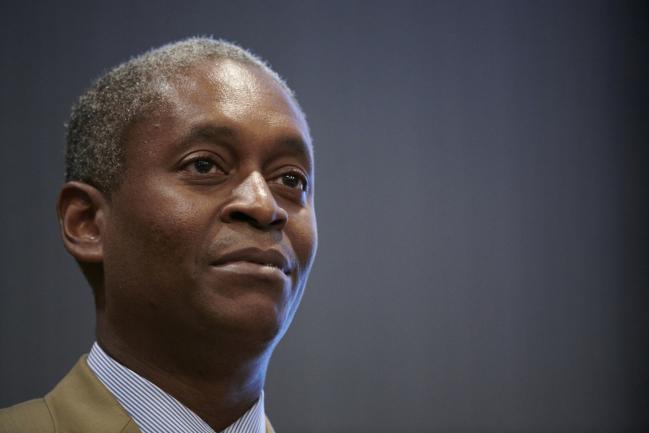(Bloomberg) -- The U.S. central bank should only raise interest rates once this year but keep going with its plan to gradually shrink the balance sheet, said , president of the Federal Reserve Bank of Atlanta and one of the Fed’s more dovish policy makers.
“Coming into this year, a year ago, I saw two moves for 2019. Right now, I’m at one move for 2019,” Bostic told the Rotary Club of Atlanta on Monday, stressing the U.S. economy could do better, or worse, than forecast. “If it’s an upside surprise, my prediction would be to go from one rate move to two, if it’s the downside it would go from one to zero,” he said.
Bostic is not a voter this year on the rate-setting Federal Open Market Committee. He has sounded relatively dovish on policy, arguing late last year the Fed should proceed with caution in raising rates to avoid inverting the yield curve.
Fed Chairman Jerome Powell on Friday opened the possibility of putting rate hikes on hold for a time as officials weigh the impact on the U.S. economy of weaker growth abroad and stock-market losses that have tightened financial conditions.
The Fed hiked rates four times last year and projections from its Dec. 19 meeting show officials expect two more hikes in 2019. It has faced pressure to pause rate hikes, including from President Donald Trump, whom Bloomberg News reported Dec. 21 had discussed firing Powell, but the U.S. labor market remains strong. Data released earlier on Friday showed U.S. employers added the most workers in 10 months as wage gains accelerated.
Trade Uncertainty
Bostic said the U.S. economy was in a “pretty good” position with risks both that it would perform better than expected as well as come in slower than forecast.
“If the trade deal with China happens, that removes a lot of uncertainty. I would expect businesses are going to invest more robustly,” Bostic said. “We could have a hard Brexit. That would be a downside surprise," he added, referring to a potential U.K. exit from the European Union with no deal on the terms of withdrawal. “It’s appropriate to be open to see what happens and be ready to respond.”
He also argued the Fed should stick with its policy of gradually shrinking its $4.1 trillion balance sheet because the central bank had promised the asset purchases that bloated it during the financial crisis would only be temporary.
“We need to honor that notion and make the temporary, truly temporary. And that’s kind of what the unwinding is,” he said. “This unwinding of the balance sheet is happening exactly the way we should do it.”
